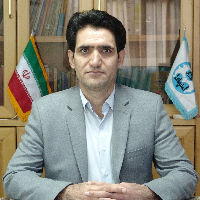A Sociological Study of the Weakness of the Emotional Cordiality in Farrokhi Sistani’s Taghazzolats
Author(s):
Article Type:
Research/Original Article (دارای رتبه معتبر)
Abstract:
Farrokhi Sistani is one of the poets whose taghazzolats(love poetries) represent the features of some of the important social classes. Some propositions of the poet's taghazzolatsshow the weak emotions between the lover and the beloved. Those statements as the indications of the "weakness of emotional cordiality" contain the preference of power over beloved, the preference of lover to beloved, and the manifestation of unnatural love cause the emotional cordialityto be weak. This process is itself under the influence of the fundamental social and historical structures of his era. Love in Farrokhi's poetry is earthly, ailing, and indecent. The appearance of such a kind of love in his language consequently leads to the creation of non-lyric propositions. However, such social propositions in his lyrics, which are not in accord with the lyric norms, could not be solely interpreted as being related to the individual behavior but a representation of the behavior of a social class; an issue which is explainable based on the social and historical reality of the era. In the present article, analyzing the poetic propositions, the author is to elucidate the relationship between Farrokhi's emotional cordialityand the general structure of his society. Farrokhi Sistani ((for his biography and status in the history of Persian literature see Bruijn 1999) is among the poets who have a reputation for the expression of delicate and intimate feelings in an extremely plain and understandable-for-all language. Casting a closer glance at his poems, one can identify propositions in his poetic language which depict his non-emotional relationship with the beloved. A sociological analysis of this emotionally colorless relationship is the subject of the present research which can further illuminate the semantic nature of Farroḵhi’s taghazzolatsfor the audience. According to Farrokhi Sistani's taghazzolatsfrom the sociology of literature point of view, topics such as the "social class" of the speaker, his relations, and "worldview" as a "producer" and the artistic reflection of this worldview in his literary work are of high importance. Certainly, a particular beloved and the lover-beloved relationship, as depicted in Farroḵhi’s taghazzolats, is not the mere representation of the reality of all people in the society of the poet’s era. As it is evident, Farroḵhi reminisces about his relationships with the beloved in most of his taghazzolats; however, we cannot take it as representative of the behavior of people in the society of that time. In fact, Farrokhi is the representative of an affluent social class demonstrating his worldview to the beloved in his literary work. In this article, the worldview specific to the court poets who constitute a part of the prevailing social structure of the Ghaznavid period is analyzed. Accordingly, the joyful content of Farroḵhi's taghazzolats cannot be a proper depiction of the happiness and welfare in the society of his time; in fact, it is an illustration of the comfort in a class of society called "court poets" or "praising poets". The empirical consciousness of this social class has overshadowed the fictional world of Farrokhi's mind leading to the production of particular propositions. This type of worldview is not an individual issue but a social one whose reflection in the social and historical works of Farroḵhi’s era can be be noticed. Therefore, Farroḵhi's poetry can be a reflection of the social behavior of the court class, as well. The portrayal of the preference of "power" agents over beloved in the language of Farrokhi's taghazzol is one of the principal social factors illustrating the weakness of emotional cordiality in his poetry. Moreover, addressing the beloved as a servant causes the language of taghazzol to take on a conative function rather than the emotive function that mirrors the master-slave social relationship of the lover and beloved, which always entails ordering and forbidding. Besides, this social status enables him to have several beloveds. More importantly, the linguistic and semantic signs of the beloved in Farrokhi's poetry show that he has possessed two distinct social roles: in addition to being a coquettish beloved, he has been a military person, as well. This abnormality in the artistic structure of the poetry illustrates the social anomaly of the poet's era and his class.
Keywords:
Language:
Persian
Published:
Literary Arts, Volume:13 Issue: 1, 2021
Pages:
169 to 186
magiran.com/p2328757
دانلود و مطالعه متن این مقاله با یکی از روشهای زیر امکان پذیر است:
اشتراک شخصی
با عضویت و پرداخت آنلاین حق اشتراک یکساله به مبلغ 1,390,000ريال میتوانید 70 عنوان مطلب دانلود کنید!
اشتراک سازمانی
به کتابخانه دانشگاه یا محل کار خود پیشنهاد کنید تا اشتراک سازمانی این پایگاه را برای دسترسی نامحدود همه کاربران به متن مطالب تهیه نمایند!
توجه!
- حق عضویت دریافتی صرف حمایت از نشریات عضو و نگهداری، تکمیل و توسعه مگیران میشود.
- پرداخت حق اشتراک و دانلود مقالات اجازه بازنشر آن در سایر رسانههای چاپی و دیجیتال را به کاربر نمیدهد.
دسترسی سراسری کاربران دانشگاه پیام نور!
اعضای هیئت علمی و دانشجویان دانشگاه پیام نور در سراسر کشور، در صورت ثبت نام با ایمیل دانشگاهی، تا پایان فروردین ماه 1403 به مقالات سایت دسترسی خواهند داشت!
In order to view content subscription is required
Personal subscription
Subscribe magiran.com for 70 € euros via PayPal and download 70 articles during a year.
Organization subscription
Please contact us to subscribe your university or library for unlimited access!


